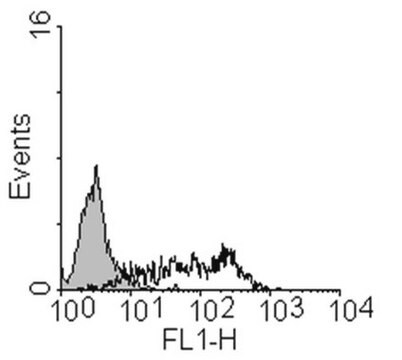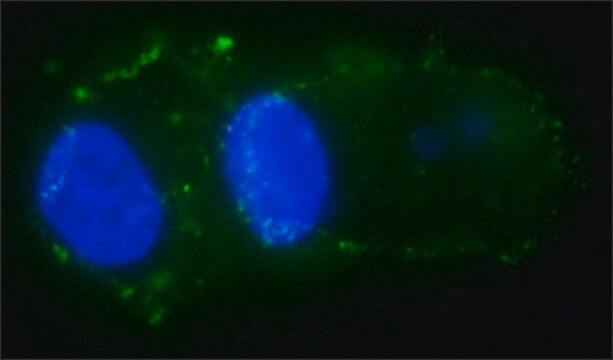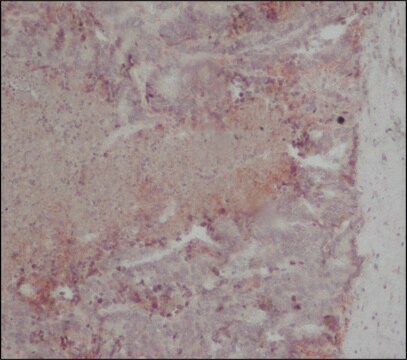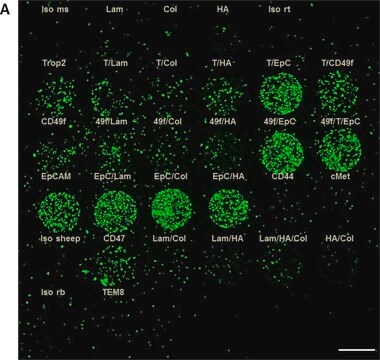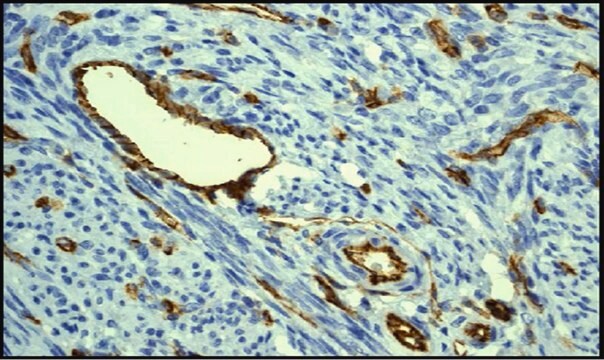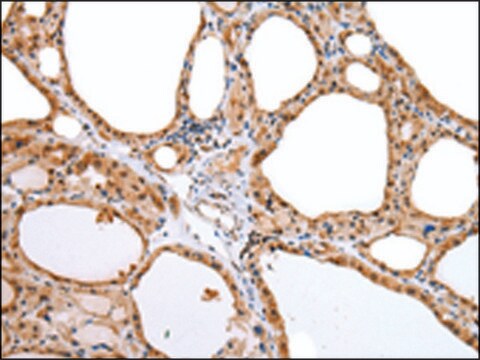SAB4200704
Anti-EpCAM antibody, Mouse monoclonal
clone Ber-EP4, purified from hybridoma cell culture
Synonym(e):
Anti-CD326 antigen, Anti-EGP, Anti-Epithelial cell surface antigen, Anti-Epithelial glycoprotein, Anti-KS 1/4 antigen, Anti-KSA, Anti-Major gastrointestinal tumor-associated protein GA733-2, Anti-Tumor-associated calcium signal transducer 1
About This Item
Empfohlene Produkte
Biologische Quelle
mouse
Qualitätsniveau
Antikörperform
purified immunoglobulin
Antikörper-Produkttyp
primary antibodies
Klon
Ber-EP4, monoclonal
Form
buffered aqueous solution
Speziesreaktivität
human
Konzentration
~1 mg/mL
Methode(n)
immunofluorescence: 1-2 μg/mL using human breast adenocarcinoma MCF-7 cell line.
immunohistochemistry: 5-10 μg/mL using heat-retrieved formalin-fixed, paraffin-embedded human colon carcinoma sections.
immunoprecipitation (IP): suitable
Isotyp
IgG1
UniProt-Hinterlegungsnummer
Versandbedingung
dry ice
Lagertemp.
−20°C
Posttranslationale Modifikation Target
unmodified
Angaben zum Gen
human ... EPCAM(4072)
Allgemeine Beschreibung
Immunogen
Biochem./physiol. Wirkung
Physikalische Form
Haftungsausschluss
Not finding the right product?
Try our Produkt-Auswahlhilfe.
Empfehlung
Lagerklassenschlüssel
10 - Combustible liquids
WGK
WGK 2
Flammpunkt (°F)
Not applicable
Flammpunkt (°C)
Not applicable
Analysenzertifikate (COA)
Suchen Sie nach Analysenzertifikate (COA), indem Sie die Lot-/Chargennummer des Produkts eingeben. Lot- und Chargennummern sind auf dem Produktetikett hinter den Wörtern ‘Lot’ oder ‘Batch’ (Lot oder Charge) zu finden.
Besitzen Sie dieses Produkt bereits?
In der Dokumentenbibliothek finden Sie die Dokumentation zu den Produkten, die Sie kürzlich erworben haben.
Unser Team von Wissenschaftlern verfügt über Erfahrung in allen Forschungsbereichen einschließlich Life Science, Materialwissenschaften, chemischer Synthese, Chromatographie, Analytik und vielen mehr..
Setzen Sie sich mit dem technischen Dienst in Verbindung.

